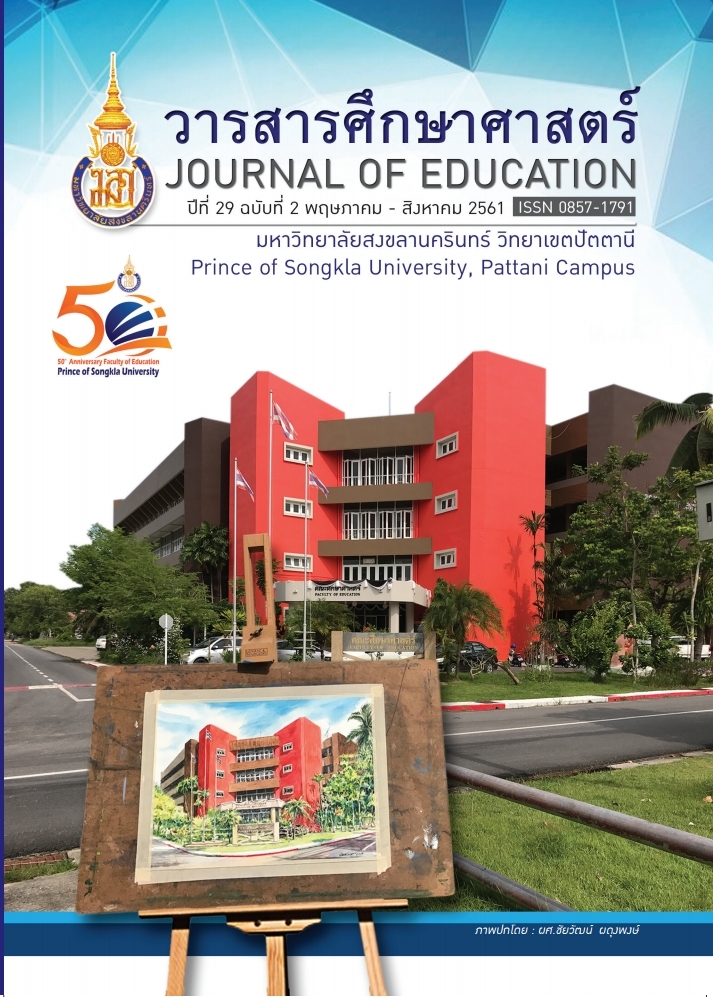Modelling of causal factors influencing the academic ability of year 12 students
Main Article Content
Abstract
The aims of this study were to assess the applicability of our designed model of causal factors affecting the academic ability of year 12 students and to evaluate direct, indirect as well as combined influences. 706 year 12 Thai students were chosen by multistage sampling. We measured the attitude of the students using a test that assessed their academic ability. The quality of the Face Validity. The reliability of the total test was .789. The data was analysed by Mplus (version 7.4). We found that our model of causal factors that influenced the academic ability of the students was in correlation with the empirical data ( χ2 = 14.696, Df = 12, χ2/df = 1.225, P-Value = 0.2585, RMSEA = 0.021, SRMR = 0.020, CFI = 0.997 and TLI = 0.987). Direct causal factors included study habit (HB), which had a positive influence (0.022) and interpersonal relationship (RE), which had a negative influence (-0.151). The causal factor influencing the academic ability both directly and indirectly was emotional adjustment (AJ). It had totol effect influence of -0.774 (insignificant at p-value of 0.01) however, HB and RE have no significant effect on academic ability. The sizes were 0.022 and -0.151, respectively.
ความสามารถทางวิชาการ ความสามารถทางวิชาการการปรับตัวทางอารมณ์ ความสัมพันธ์ระหว่างบุคคล


